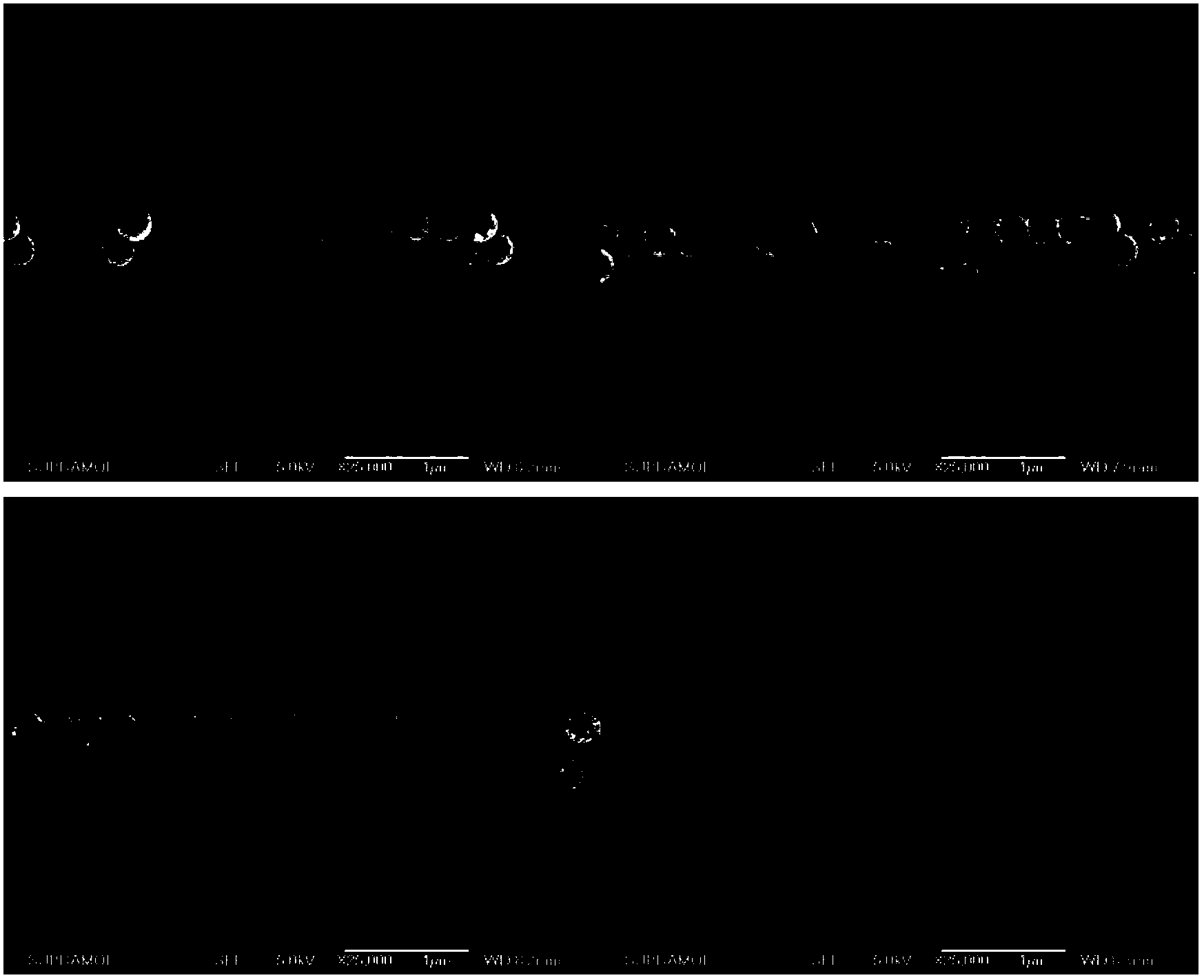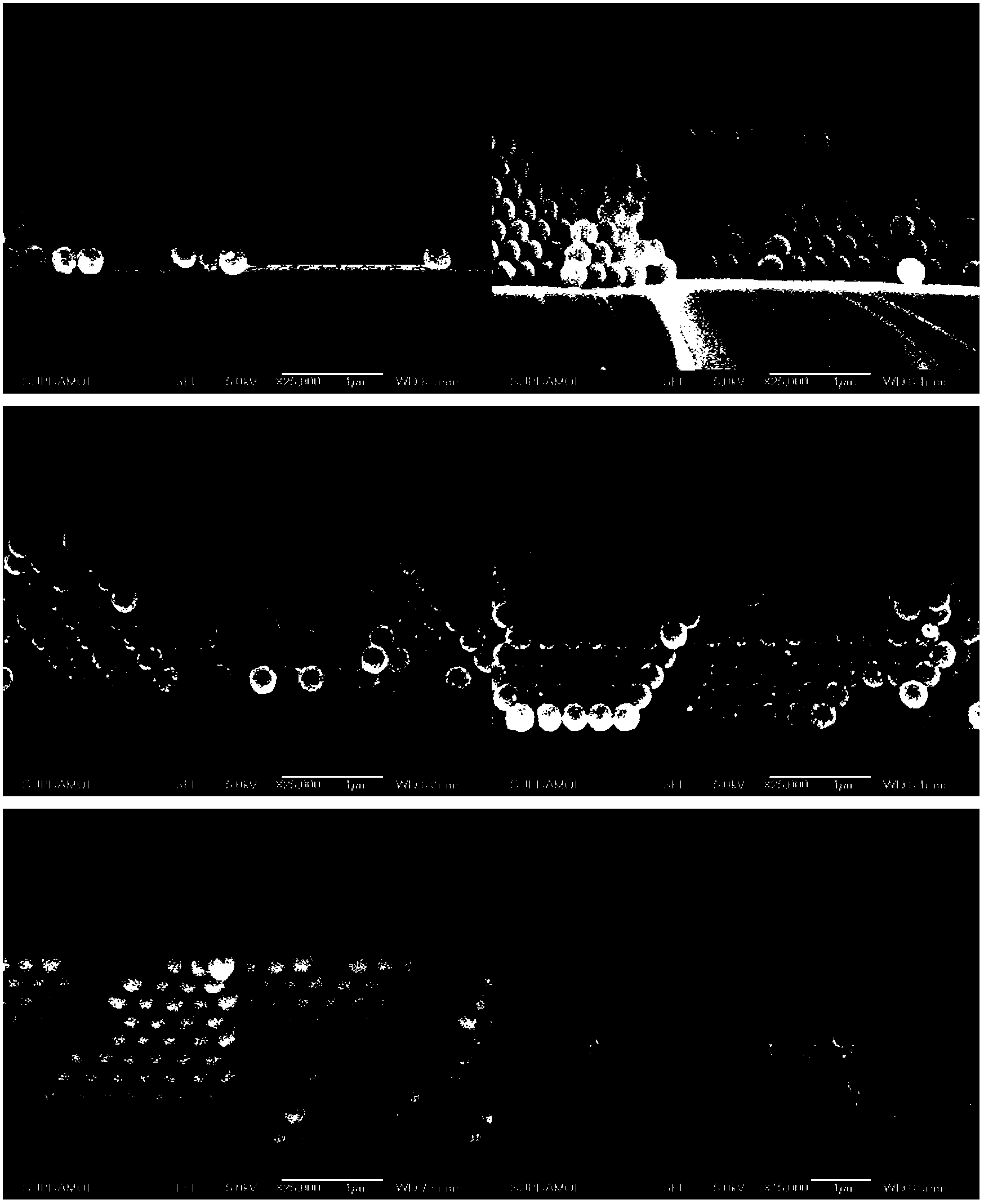Method for preparing gradient-controllable colloidal photonic crystal
A colloidal photonic crystal and gradient technology, applied in the field of materials, can solve problems such as difficulty in obtaining photonic modes, and achieve the effect of simple operation and good stability
- Summary
- Abstract
- Description
- Claims
- Application Information
AI Technical Summary
Problems solved by technology
Method used
Image
Examples
Embodiment 1
[0026] Example 1: Preparation of hydrophilic silicon wafers
[0027] The silicon wafer used is a single crystal silicon wafer (100), and the silicon wafer is cut to a size of 4cm long and 3cm wide with a glass knife, and is placed in a mixed solution of concentrated sulfuric acid (98% by mass) and hydrogen peroxide (30% by mass). (The volume ratio is 7:3) in a water bath and heated to 80°C for 5 hours to obtain a hydrophilic silicon wafer; then pour the mixed solution into a waste liquid bottle, and repeatedly wash the obtained hydrophilic silicon wafer with deionized water 3~5 times, keep in deionized water for later use.
Embodiment 2
[0028] Example 2: Purification of monomers and initiators
[0029] Put styrene and 10wt% sodium hydroxide aqueous solution into the separatory funnel, shake to make the polymerization inhibitor (hydroquinone) in styrene react chemically with sodium hydroxide to generate the sodium salt of hydroquinone, and separate liquid Then repeat washing 3 times until colorless; then wash with distilled water to pH=7, and use anhydrous sulfuric acid to remove water; collect fractions by vacuum distillation, and directly collect fractions by vacuum distillation of methyl methacrylate and acrylic acid.
[0030] At 40°C, ammonium persulfate was dissolved in deionized water, filtered and the filtrate was cooled with ice, and the filtrate was filtered out after crystallization, repeated filtration three times, and dried at room temperature before use.
Embodiment 3
[0031] Example 3: Preparation of P (St-MMA-AA) microspheres with a diameter of 253 nm
[0032] Install the electromagnetic stirrer, condenser tube and nitrogen tube into a 250mL three-necked flask, and then add 120mL deionized water after exhausting the air with nitrogen; dissolve 0.42g ammonium persulfate and 0.8g ammonium bicarbonate in deionized water; add 20mL deionized water. A mixture of styrene, methyl methacrylate, and acrylic monomers in a volume ratio of 90:5:5 was distilled under pressure. After passing nitrogen to remove oxygen, at a stirring speed of 400 rpm, the water bath was heated to 70 ° C, and the reaction was stable for 7 h under nitrogen atmosphere; after the polymerization was completed, the unpolymerized monomer was removed by volatilization under continuous stirring, and the agglomerated colloidal particles in the emulsion were removed by suction filtration. The spheres were centrifuged and washed three times to remove impurities, thereby obtaining P (S...
PUM
 Login to View More
Login to View More Abstract
Description
Claims
Application Information
 Login to View More
Login to View More - R&D
- Intellectual Property
- Life Sciences
- Materials
- Tech Scout
- Unparalleled Data Quality
- Higher Quality Content
- 60% Fewer Hallucinations
Browse by: Latest US Patents, China's latest patents, Technical Efficacy Thesaurus, Application Domain, Technology Topic, Popular Technical Reports.
© 2025 PatSnap. All rights reserved.Legal|Privacy policy|Modern Slavery Act Transparency Statement|Sitemap|About US| Contact US: help@patsnap.com



